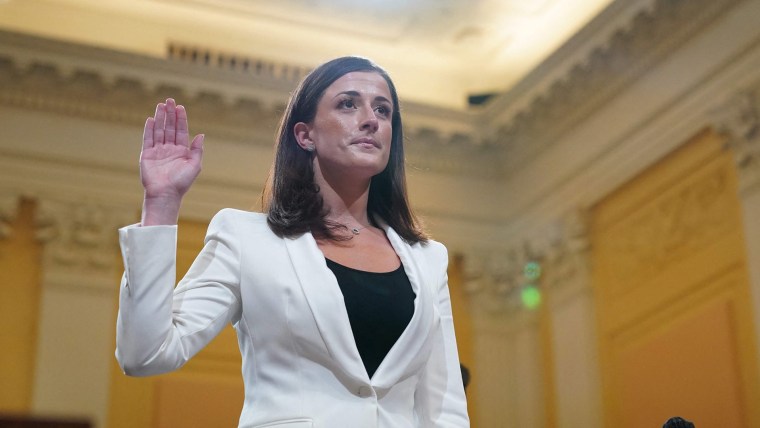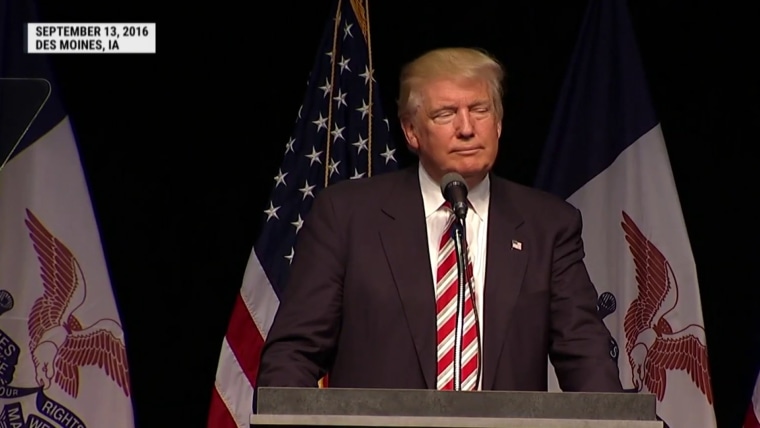The recently released transcripts from the House Jan. 6 Committee reveal a pattern of stonewalling and obfuscation by people in former President Donald Trump’s orbit. Former White House staffer Cassidy Hutchinson told the panel that Stefan Passantino, one of Trump’s lawyers, coached her to avoid giving relevant testimony.
And witnesses like Charlie Kirk and Jenna Ellis pleaded their Fifth Amendment right to remain silent in response to the most basic questions, such as their level of education or prior employment. This dovetails with the report’s executive summary, released on Monday, which includes a section on “Efforts to Avoid Testifying, Evidence of Obstruction, and Assessments of Witness Credibility,” detailing witnesses not just taking the Fifth, but pretending not to recall events and seeking pardons from the White House after the fact.
These findings aren’t as sexy or explosive as those focusing on Trump’s direct culpability. But in understanding how Jan. 6 happened, and how to prevent it from happening again, the attempted obstruction by Trump’s cronies may be the most important revelations of all.
The attempted obstruction by Trump’s cronies may be the most important revelations of all.
Trump’s actions are so outrageous, and so dangerous, that it’s tempting to imagine that if we could just get him behind bars in an orange jumpsuit, everything would be fine. But the sheer breadth and magnitude of the interconnected prongs leading up to Jan. 6 make clear that Trump could have never pulled off his self-coup alone. Trump’s lawyers, his chief of staff and members of Congress all acted in concert toward the same anti-democratic and illegal goal: They were what I like to call the “infrastructure” of Trump’s con, giving his attempted coup its structure and providing support. This is, of course, a double-edged sword: When you have a lot of cooks in the kitchen, you have a lot of witnesses to your crime — which, for the FBI, or a congressional committee, is an advantage.
Trump understands this, which is why obstruction of investigations into his conduct has been his go-to crime since he began his presidency. During the investigation into Russia’s interference in the 2016 election, Trump repeatedly attempted to discredit or outright fire the special counsel, dangled pardons to those who were willing to lie on his behalf, and intimidated others who cooperated with law enforcement.

The second article of impeachment following Trump’s withholding of military aid from Ukraine was “Obstruction of Congress” (foreshadowing, anyone?). The article lays out how Trump, “without lawful cause or excuse … directed Executive Branch agencies, offices, and officials not to comply with [congressional] subpoenas.” One of the potential crimes that motivated the FBI’s search warrant at Mar-a-Lago was obstruction of justice, for failure to turn over all of the classified documents in response to a subpoena; the certification filed by his lawyers falsely asserted that no more classified documents remained at the compound.
The suite of crimes that comprise obstruction of justice — which include making false statements, witness tampering and concealing evidence — are often diminished as mere “process crimes.” The insinuation is that these aren’t “real” crimes, but what the FBI uses when they can’t get you for something else. It’s true that these crimes exist independent of any other “substantive” criminal act. As I liked to tell my interviewees when I was in the FBI, Martha Stewart didn’t go to jail for insider trading, as many believe. She went to jail for lying to the FBI and obstruction of justice.
Trump’s larger pattern is signaling to his supporters that they will be rewarded if they help him, particularly by thwarting the investigative process.
But in many ways, process crimes are on equal footing with substantive crimes: By ensuring that the investigative process works without taint or interference, it ensures that we get to the truth. When the process fails, the truth can be obscured, as Trump well knows. Special counsel Robert Mueller noted in his final report that due to attempts by witnesses to conceal and destroy evidence, his office “could not rule out the possibility that the unavailable information would shed light on (or cast in a new light) the events described in the report.”
(It’s worth noting that despite pooh-poohing lying to the FBI as a “process crime,” special counsel John Durham, who was widely hailed as a hero on the right for “investigating the investigators” in the Russia case, ended up bringing only three indictments — all for making false statements.)
The Jan. 6 committee revealed that on Monday it is “aware of multiple efforts by President Trump to contact Select Committee witnesses,” adding that the Justice Department “is aware of at least one of those circumstances.” But Trump’s larger pattern is signaling to his supporters that they will be rewarded if they help him, particularly by thwarting the investigative process.
Throughout his presidency, Trump wielded his pardon power to exonerate people who lied to the FBI, like Scooter Libby and Rod Blagojevich, demonstrating that he believed these “process crimes” were the worthiest of forgiveness. At the end of his presidency, he pardoned those who actively lied to investigators or Congress on his behalf. It’s no surprise that several members of Congress all asked for and expected a pardon for their complicity in Jan. 6.
Many, if not most, of these instances of obstruction may not be acts that can be criminally prosecuted. After all, invoking the Fifth is a constitutional right, and it’s not illegal to ask for a pardon. But they point to a broader pattern of complicity by a large swath of people who saw only upsides to enabling the former president’s misconduct; we should not lose sight of this in the frenzy to bring the hammer down on Trump. People like Trump can only succeed when there are enablers willing to do their bidding. We should focus on all avenues of accountability — including public exposure, ethics and disciplinary proceedings, and (most importantly) the ballot box — to deter these people in the future.
